Thiraphon Chinda 国際協力専攻(DICOS)博士前期課程修了
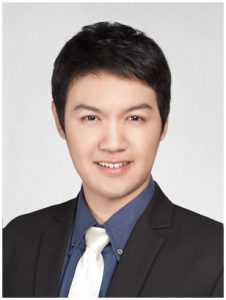
My name is Thiraphon, but my friend called me Champ. I am now starting my second year as a Master’s student, majoring in Peacebuilding. My interests are democratization, gender equality and peace, some of which I had learn some during my bachelor degree. It’s my pleasure to thank to Asian Development Bank (ADB) for providing me a scholarship to study in GSID, which has given me a brand new world that I never had before.
GSID, for me, is the graduate school of diversity; we have many friends from different cultures and language backgrounds. We can learn and share our different opinions, discuss in class and respect each other. Moreover, I had interactions with excellent professors who broadened my horizon and knowledge to the better understanding of professional priorities in terms of academic and non-academic points of view. Besides, GSID offered me to participate in Overseas Fieldwork which provided me with an understanding of development cooperation and applying knowledge and practice to real work.
Lastly, I wish to take this opportunity to thank GSID for giving me a valuable experience, not only knowledge but also a chance to discover Japan and learn Japanese culture. This is the best thing I have ever had in my life.
Cho Mar Naing 国際協力専攻(DICOS)博士前期課程修了
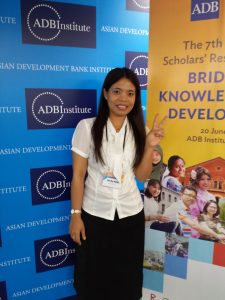
GSID is the greatest memory in my life. Talking about my acquaintance with international development studies or joyful moments with friends from different cultures and backgrounds, GSID always stands as an unforgettable experience for me.
It was great good luck that I became a master’s student in GSID majoring international cooperation studies under the Asian Development Bank- Japan Scholarship Program (ADB-JSP) in 2013. During these two years in GSID, I would say I experienced the best moments in my life ever.
GSID pursues a multi-disciplinary approach to development studies. In the classrooms and seminars, the incredible expertise of each of the distinguished professors engages the students with a wide range of perceptions and ideas about development trends. The logically-structured courses in various programs can be said to be one of the most attractive and rewarding images of the school.
Shaping a multicultural society, students from different parts of the world spend their time together and share ideas and information within each other. In such a diverse and knowledgeable environment, I would like to say that GSID is one of the best places to study international development around the world.
Median Mutiara 国際協力専攻(DICOS)博士後期課程修了
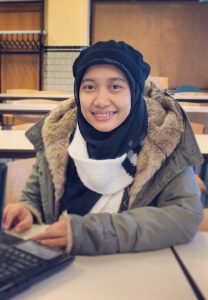
The Graduate School of International Development (GSID) is a place where people from many countries explore, pursue knowledge and fill the classes with the vibrancy of critical thought. I was a research student in the Nagoya University Program for Academic Exchange (NUPACE) with a Japan Association for Student Service Organization (JASSO) scholarship when I joined classes and seminars in GSID for the first time. In GSID, and Nagoya University in general, I experienced a lot of excitement about ideas―the light bulb moment. Thus, when I had the chance to go back to Japan with a scholarship from the Ministry of Education, Culture, Sport, Science and Technology (MEXT), I did not hesitate to return.
Currently I am in the second year of the doctoral program. I find the program quite flexible yet thought-provoking. It encourages students to be independent researchers. It offers an unpretentious collegial atmosphere enhanced by a diverse range of research interests and projects. Managing our own research independently means being at the forefront of a new problems, participating painstakingly in the exploration, the excitement, and the pains of coining new knowledge. I myself enjoy this perfect combination of discussion, independent fieldwork, overseas dissemination and networking. In addition, I feel very fortunate to have a supportive supervisor. He allows me to broaden and refine my interests, grappling the other sides of the reality, unpopular yet pivotal, about children’s roles and influences in migration, which is at the same time challenging the arduous reality of adultcentrism in the field. With his continuous support, my research project received a prestigious research grant from Fuji Xerox Ltd. and fellowships from universities in Europe that enable me to participate in international courses and conferences. In short, conducting doctoral research in GSID is an enriching experience in the pursuit of intellectual capital advancement.
Luis García 国際協力専攻(DICOS)博士後期程修了
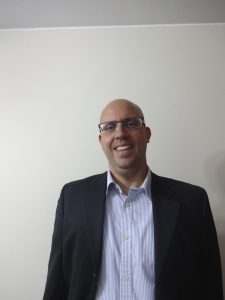
I feel great gratitude to GSID and to its pool of teachers. They were always available to discuss my doubts and to question my arguments in an environment of respect and horizontality. I consider GSID unique because I found that teachers and students here are one hundred percent committed to both their academic research and the people they deal with. Developing great friendships at GSID is just the natural consequence of interacting always with this type of people; people who really want to make a difference in this world (and who are making it already!). When looking back, I see that doctoral students must fulfill lots of difficult tasks in a very limited time frame. It is a process filled with uncertainties and challenges. Working in the environment that GSID creates makes it easier for everybody. Obtaining a Ph.D. in International Development has been a great step in my career; from March 2015 I will start teaching human rights in Peru at the National University of San Marcos.
杜 開 国際コミュニケーション専攻(DICOM)博士前期課程修了
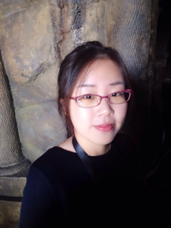
私は2013年4月に国際開発研究科(GSID)に入学し、博士前期課程の二年間をGSIDで楽しく有意義に過ごしました。 私の学部時代の専攻は経営学で、日本企業の海外進出の戦略及び生じた問題を中心に取り組みました。そのうちに、進出 先の国の文化や習慣を理解することの重要さを感じ、「異文化理解」ということに漠然と関心を持つようになりました。 ちょうどその頃国際開発研究科の存在を知り、GSIDの国際コミュニケーション専攻(DICOM)に進学することを決意 しました。
GSIDは名古屋大学の「国連」と言っても良いでしょう。日本人学生だけではなく、世界中様々な国や地域からの留学 生もここに集まり、授業や日常コミュニケーションを通じて、語学力を向上させ、互いの文化をより深く理解することがで きました。また、授業の話で言えば、私は「人の移動と異文化理解」プログラムの授業を中心に履修していました。専門 知識や研究方法など多元的な知識を先生方から教わりました。例えば、先行文献からどのように斬新な切り口を探し出すか、 現地調査の事前準備や注意点などといったようなことが挙げられます。そのおかげで、人類学、移民学、社会学 などの分野を系統的に勉強することができ、個人の研究にもかなり役に立ちました。さらに、DICOMのゼミは少人数で行われ、毎学期 一回以上の個人研究発表の機会があります。研究テーマの構想から修士論文の完成まで、先生方が丁寧に指導して下さり、先輩方も多角的な観点から助言を下さり、実に良い勉強の雰囲気だと思っています。
GSIDでの二年間は、私今後の人生にとって貴重な経歴と財産になりました。ここで出会った恩師と友人のおかげで、 有意義な留学生活を送りました。私は先生方から学んだ研究に対する真剣さと情熱を忘れず、GSIDで学んだ知識を生か して、今後は、社会人としての新たな一歩を踏み出していきたいと考えています。
郭 世豪 国際コミュニケーション専攻(DICOM)博士前期課程
学部時代は台湾の大学で日本語を勉強していました。卒業後、日本語の研究を続けたかったですので、GSIDの国際コミュニケーション専攻に入学しました。国際コミュニケーション専攻のカリキュラムの特色の一つは、コンピューターを活用する研究方法を指導する授業が充実していることです。基本的な情報処理の技法、実験用プログラムのデザインと作成、統計検定の基礎と手法、大規模コーパスを駆使する研究方法などなど、様々な研究に役立つスキルが修得できます。また、技術面のみならず、理論に関する授業も充実していますので、自分の研究に必要な知識が身に付きます。そして、先生方も皆優し くて親切に指導して下さります。
私がお薦めする授業は「言語情報処理入門」と「人類言語学」の2つの授業です。「言語情報処理入門」の授業では4~5人の先生方が順番で担当され、コンピューターを活用する研究方法を指導して下さります。また、「人類言語学」の授業では音声学をはじめ、音韻学、意味論、統語論など言語学の研究にとって必要不可欠な基礎知識を知ることができます。実際、私自身はこの2つの授業を3回も受けました。
GSIDの最大の特色は留学生が多いことです。日本にいながら様々な国からの留学生と触れ合え、語学力の上達はもちろん、各国の文化や習俗に接するチャンスにも恵まれており、国際観を養う最適な環境だと言えます。
施設面では、院生の一人一人に自分専用の席とロッカーがあり、コンピューターとプリンターが自由に使用できるサテライトラボ、印刷室、図書室など、研究に専念できる環境が整っています。また、生活面では2階と3階に院生用のラウンジが設置されており、院生間の交流やディスカッション、食事に利用で きます。
GSIDは素敵な空間です。私はGSIDに入って良かったと思います。これから入学する皆様もきっとここで楽しい院生生活が過ごせると信じています。
